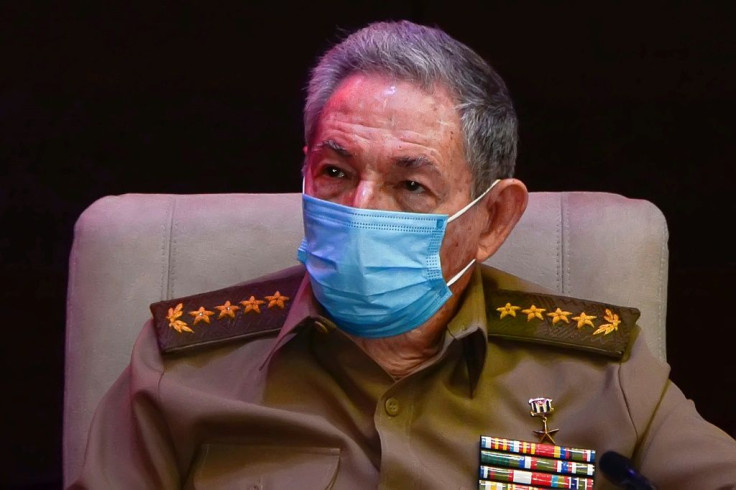Raul Castro: Cuba's Pragmatist Who Emerged From Fidel's Shadow
Long in his brother Fidel's shadow, Raul Castro led Cuba with pragmatism for 15 years ahead of his retirement at the age of almost 90.
When his charismatic older brother handed over the presidency in 2006 due to illness, Raul, more used to the back stage, was reluctantly forced out into the spotlight.
Since then, he's launched unprecedented reforms such as opening the single-party state's economy to the private sector.
But he "never tried to emulate his brother's personality, and built his own more rational and pragmatic leadership," Michael Shifter, president of the Washington-based Inter-American Dialogue think tank, told AFP.
Under his presidency, the country opened its economy to free markets, authorized Cubans to travel abroad, to sell their cars or homes, and even freed some dissidents.
Alongside then-US president Barack Obama, Raul negotiated a previously unthinkable rapprochement between Cuba and the United States, only for Donald Trump to rip it up when he moved into the White House in 2016.
Having gone into semi-retirement when giving up the presidency to Miguel Diaz-Canel in 2018, Raul has now also passed on the most powerful position in the country to his 60-year-old successor: first secretary of the Communist Party of Cuba.
It's the end of a career marked by the 1959 revolution, after which he spent 50 years as Cuba's defense minister.
"After the war... prison, exile, any of those three things are what most unite men, and most of us went through all three," said Raul in the 1980 documentary "The Necessary War."
The Castro family came from Biran, a village in the east of the island nation, and that's where Raul began his schooling and played with the children of his parents' employees, swimming in rivers and heading off on long horse rides.
Aged 22, and with no military experience, he joined Fidel in a failed attack on the Moncada garrison in July 1953, after which he spent two years in prison before being exiled to Mexico.
He returned in 1958 aboard the Granma yacht to help lead the revolution, this time with success.

His chubby and clean shaven face -- in contrast to the typically bearded revolutionaries -- hid a steely will that saw him order the execution of agents of the fleeing dictator Fulgencio Batista.
"I could not face up to the enemy as a charitable soul," he said in 1993 in a rare interview with Mexican newspaper Diario.
But with his troops, he showed a completely different side to his character.
"He liked to chat, to joke and have a drink with his officers... there was something about him his soldiers liked," Hal Klepak, professor emeritus of history and strategy at the Royal Military College in Canada, told AFP.
His other quality is that "he has always been a good organizer, administrator," said Shifter.
He "showed great talent and capacity to organize and manage" the revolutionary armed forces, also allocating to them substantial funds, that proved one of the main reasons the communist party survived in the 1990s.
His organizational skills were fundamental in structuring the party and bringing the Cuban army success in African missions in Ethiopia and Angola in the 1970s and 1980s.
It was "the most important military deployment in history by a Latin American country outside of its region," said Klepak.
Although Castro enacted many reforms as president, for Shifter he never went far enough with the economy, leaving the state still dominant.
Politically he failed to "open channels to pluralism" and "maintained an authoritarian and repressive state."
A family man, unlike his brother, he married fellow revolutionary Vilma Espin, with whom he had four children.
His only son, Alejandro Castro Espin, is a colonel specializing in international relations who has not been seen in public since representing Cuba in the negotiations to improve relations with Washington.
A long-time president of the federation of Cuban women, Espin died in 2007 and is buried in the eastern city of Santiago de Cuba in a tomb that is already engraved with Raul's name.
© Copyright AFP {{Year}}. All rights reserved.





















